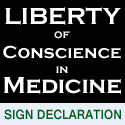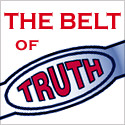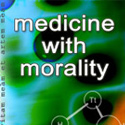A Critique. Good Medical Practice: A Code of Conduct for Doctors in Australia.
A Critique. Good Medical Practice: A Code of Conduct for Doctors in Australia.
The new Code of Conduct (COC) that takes effect as from 1 Oct 2020 is not a code of ethics but it could easily be interpreted as such with legal penalties for transgression.
Concerns include
- It subjects itself to law
- Freedom of medical speech and belief
- Threatened encroachment of the COC into established Codes of Medical Ethics
- Freedom of speech and the fitness of doctors to practice medicine
- How did the draft COC of 2018 get to be so bad?
- How can we mitigate against such bad influences in the future?
- Will ethical doctors ultimately be excluded from the practice of medicine?
- Further comments on the MBA, the COC, good medical practice, freedom of speech and inducing a climate of fear.
Re A. Should we have any doubts re the legality of the COC it clearly states in 1.3 “if there is any conflict between this code and the law, the law takes precedence”. Despite its similarities it can never be seen as an ethical code.
Consistent with long standing ethical codes based over millennia (e.g. WMA, UDHR, ICCPR) we believe we must
- heal on request even if government forbids it
- refuse “treatments” and procedures even when government compels it
(as stated in The Heart of Medicine) and very consistent with the warning given by German doctors “Medicine can be distorted by state; physicians must be above state-decreed strategies” when they gathered in 1996 on the fiftieth anniversary of the Nuremberg medical trials.
This is particularly relevant in Australia with the passing of Section 8 of the 2008 abortion law in Victoria and with the passing of so called “conversion therapy” laws in Qld and the ACT already and proposed laws in Victoria and SA
The warning given to Dr Mark Hobart by MBA in 2013 for refusing to refer a patient for a sex-selective abortion – even though there was no complaint and the patient was able to simply attend an abortion clinic – and the subsequent failure to even caution the doctor who did the abortion – illustrates the intense failure of the MBA Code of Conduct to even remotely masquerade as a genuine ethical code.
Governments may legislate to permit certain practices or procedures but governments must never force doctors to violate their conscience by compulsory engagement in such practices or procedures. The Independence of the medical profession is critical – belief in practice as enshrined in the international covenants of the UDHR and ICCPR and non-derogable, that cannot be overridden even in national emergency (article 4 ICCPR).
When legal code supersedes moral code, the slope of a culture’s decline is steep and swift. J. Scott Ries, MD
Also see 2009 Conscience Laws & Healthcare Conference- Dr Lachlan Dunjey https://vimeo.com/7809169
Re B. Freedom of medical speech and belief
Although many of the concerns we had with the 2018 draft version have been met we still have concerns with the 2020 version of freedom of medical speech particularly in connection with matters of public health.
Within the professional doctor/patient relationship this can also put at risk what we say with respect to informed consent.
Our attitude is consistent with that in The Heart of Medicine
Collegiality and loyalty – but not at the expense of truth[i].
To seek, and to speak for, the future of medicine especially in ethical standards[ii] and the doctor-patient relationship, being aware of the lessons of history[iii], with active engagement depending on the opportunity. Understanding that it is not enough to evaluate medical or surgical options while ignoring the merits of the purpose for which those techniques are being discussed[iv]. Understanding also that there will be ethical divides when it becomes essential for medicine, not activists and not governments, to be decisive and authoritative, when there is no neutral[v].
To promote physical and mental health in community, helping the disadvantaged, and promoting a global consciousness with respect to all who are at risk. It is also to warn of risk to health of family and community and to engage in such action as is necessary to counter those risks both within Medicine and in Government.
Remaining concerns re wording and future interpretation of such apply to
2.1 paragraph 5 re impact and delivery
2.2 p2 reputation of the profession. The phrase above ‘Collegiality and loyalty – but not at the expense of truth’ becomes significant and is a battleground elsewhere as in the case of the sacking of Dr Peter Ridd by the University of Queensland
The university said a key reason was his lack of “collegiality”. He had publicly disagreed with some of his university colleagues…
3.4.3 The meaning of discriminating with respect to decision making re gender identity and sexual orientation.
It is worth noting the excellent statement in the 2020 COC 7.4 to “promote the health of the community” which I would think also entails reasonable use of social media if it is to be effective particularly to young people – consistent with the statement above in The Heart of Medicine.
Re C. Threatened encroachment of the COC into established Codes of Medical Ethics
Particularly concerning the doctor/patient relationship and freedom of speech as illustrated by the 2018 COC and the enforcement by law of these encroachments into existing codes. It then becomes important to establish and re-establish firm principles of ethical practice and role in the community
e.g. from A Manifesto of Human Life for the 21st Century
We affirm our right – and indeed obligation – to speak for the future of our society. We hold that Natural Law is present in the heart of mankind; that this law exhorts us to protect the innocent and helpless and to uphold the sanctity, preciousness and intrinsic value of life at all stages. We further hold that these are eternal and immutable principles.
We assert our right and obligation to practice medicine according to our conscience. We will not engage in or facilitate procedures or practices that we believe are inconsistent with the above manifesto.
From Liberty of Conscience in Medicine
We believe it is in the patient’s best interests for doctors to adhere to a code of ethics that is independent of any standards set by governments or practices that may be permitted by legislation.
It may be legitimately queried as Emeritus Professor John Murtagh AM did in his submission whether a code of conduct for doctors is even necessary, calling it an encumbrance rather than a support for the profession.
“A problem of the code is the endorsement of harmful cultural beliefs and other practices which may conflict with the appropriate accepted medical practice or conscience of the practitioner”.
“Questions such as do we really need a code and who are the people who formulate it come to mind”.
Re D. Freedom of speech and the fitness of Doctors to Practice Medicine (a previous reflection).
Does a point of view, publically or privately expressed, render a doctor unfit to practice medicine?
Is there an acid test that renders a very competent and compassionate doctor, who also goes to the ends of the earth physically and metaphorically to help a person or many persons in need, unfit to practice medicine?
The history of compassionate medicine clearly shows that doctors of different persuasions can work together in medical aid.
The problem being in the eyes of the person to whom that aid is offered “I’m not having you to treat me or my child” and who makes a complaint to a medical board or tribunal.
Does this mean that a doctor’s view should never be expressed? Even when it is sought? Even when it is demanded? Does it mean that the doctor who will not do abortions, even when the only doctor in a country town, should leave that country town (as the American College of O&G has stated)? Does it mean that medicine should never have been chosen as a profession? (There are many who say that.)
And the many submissions I and others have made on abortion and euthanasia that I know will alienate me from many patients (although never from my patients who know me), do they render me unfit to practice?
What about my view – in actuality not a “view” but a fact – that sexuality as in male and female is written into the genetic code and that children should never be progressed along hormonal and surgical pathways to attempt to change sex? And my view that doctors should not be involved in such progression?
Should such views never be expressed in public even when it is essential for such knowledge to be shared to help individuals and parents to make wise choices in their private lives and also to help in their election time voting? Does it mean that doctors should never have views on how disease can be spread? Does it mean that such doctors should never enter the public health field of medicine? That the doctor who will not do abortions should never enter O&G? That the anti-euthanasia doctor should never enter general practice?
But it will not be enough to exclude doctors from making statements in public – even when it is regarded that such statements are essential for the public good – as the views will be sought out and demanded.
If it is OK for statements to be made publically, where is the limit if there is a limit? Why not social media if this is the way such can be heard? Is it OK to for controversy to follow? Is this OK in a democratic society?
Re E. How did the draft COC of 2018 get to be so bad?
Professor Anne Tonkin, medical board chair, is quoted as saying “the draft clauses were removed because they were badly worded”.
This may apply to some sections about which we still have concerns but it does not exclude the sections subjecting medical decisions to “culturally safe and respectful practice” and the influence of “only the patient and/or family” 4.8.1. It is because of such outside pressures that we have a two-millennium history of medical ethics. The draft code of 2018 in this respect was not ”badly worded”, it was an obvious attempt to subject medical decision making to cultural influences potentially antithetical to good medical practice.
Reassuringly, the 2020 code 4.8 is strong “Culturally safe practice, like all good medical practice, does not require doctors to provide care that is medically unsafe or inappropriate”.
So, while we are pleased with the removal of such sections implying subjection of ethical standards to cultural beliefs and the influence of relatives of the patient, we nevertheless have concerns about how it even got into a draft code and we should continue to be alert to these influences.
We were also concerned re the LGBTiQ influences affecting 3.4.3 with the addition of “gender identity” and “sexual orientation” into the “not discriminating against your patient on medically irrelevant grounds”. Our position being that these additional grounds could be very relevant medically. We are therefore pleased that “medically irrelevant” has now been removed. But watch this space.
Re F. How can we mitigate against such bad influences in the future?
The AMA has already declared itself “onside” and hopefully the Royal Colleges will ultimately be concerned enough and strong enough to fight for all doctors. The support I have personally had from a prominent ex AMA National President and from other prominent doctors has been overwhelming but they have preferred not to be named – as Professor John Whitehall has also discovered regarding 28 of his colleagues “don’t quote me”.
Existing declarations as per Appendix 3 become increasingly important including The Heart of Medicine.
And maybe – for the sake of our colleagues – we should have a simple statement available “we have reservations with the COC re freedom of speech including in the consulting room re informed consent and how the wording may be interpreted in the future”.
Re G. Will ethical doctors ultimately be excluded from the practice of medicine?
The threat to liberty of conscience also comes from within. Unfortunately, there are those in high places who say that doctors who are not prepared to do that which is legal should not be doctors.
If people are not prepared to offer legally permitted, efficient, and beneficial care to a patient because it conflicts with their values, they should not be doctors.
Professor Julian Savulescu, Oxford Uehiro Centre for Practical Ethics, BMJ 2006;332:294-297 February 4
Lachlan de Crespigny and Julian Savulescu in the Medical Journal of Australia argue
moral objections to beneficial, desired, legal and just medical interventions… cannot compromise patient care.
Crespigny L and Savulescu J. Pregnant women with foetal abnormalities: the forgotten people in the abortion debate. MJA Vol 188 No.2: 21 January 2008
Let’s tease this out a little. If we are not prepared to do it “best and legal” the message is that we should not be doctors. There is now no place for the ordinary doctor to stay out of the debate – our ability to practice medicine according to our conscience is under threat.
See 8th World Conference of the World Christian Doctors Network, Brisbane June 11/12, 2011 http://www.medicinewithoutmorality.info/wp-content/uploads/downloads/2011/09/Liberty-of-Conscience.pdf
Re H. Further comments on the MBA, the COC, good medical practice, freedom of speech and inducing a climate of fear.
Dr Jereth Kok has now been suspended under “emergency” powers for almost 15 months for what he has written in social media and Eternity magazine, which we could argue is consistent with COC 7.4.
As we understand it Dr Kok offered to take down the posts in question but was not given this opportunity. Indeed, Professor Anne Tonkin is quoted as saying that intervention by MBA “would require somebody to be unresponsive to requests to take things down”.
Also as we understand it the MBA commissioned investigators to search social media posts back to 2010, yet Professor Tonkin is quoted in the same article as saying “if nobody is concerned about what people are saying, we don’t find out about it.”
Emeritus Professor John Murtagh AM in his submission has correctly highlighted
…issues around freedom of speech and handling of multicultural issues with the spectre of organisations such as the Administrative Appeals Tribunal and the Australian Human Rights Commission in the background. We seem to be heading towards the nightmare of the restrictive Orwellian society.
Despite the revisions the 2020 COC still leaves doctors in a climate of fear, where conscientious doctors passionately concerned about the future of medicine are reluctant to speak out for fear of being targeted as Professor John Whitehall has discovered in speaking out about laws in Qld and ACT re so-called “conversion therapy” with 28 other paediatricians agreeing with him but saying “please don’t quote me”.
Should not the Medical Board of Australia be disbanded for the threatened attacks – not “badly worded” – on good medical practice and on freedom of speech, having been clearly influenced by cultural factors as shown in the draft 2018 COC?
Appendix 1: Extra note re Dr Jereth Kok. I see that Dr Kok was suspended under Section 156(1)e of the National Law when the example given relates to a serious criminal offence
(e) the National Board reasonably believes the action is otherwise in the public interest.
Example of when action may be taken in the public interest—
A registered health practitioner is charged with a serious criminal offence, unrelated to the practitioner’s practice, for which immediate action is required to be taken to maintain public confidence in the provision of services by health practitioners.
This once again would lead to a charge that the MBA has been inappropriately severe in its charge against Dr Kok.
Appendix 2: re climate of fear and freedom of speech, I have it on good authority that on at least five other occasions doctors have been investigated
- A Victorian specialist placed under heavy conditions (including “education” and mentoring) for making a series of tweets in opposition to gay marriage in 2017. He ultimately decided to retire from medicine rather than accept the conditions.
- A GP required to attend “education” as a condition of retaining his registration, for tweeting against abortion.
- A specialist investigated three times by AHPRA, for making critical comments about transgenderism.
- A specialist investigated and cautioned for speaking at a seminar opposed to the Safe Schools programme.
- A specialist investigated for addressing the annual Life Coalition dinner in Melbourne.
Appendix 3: Existing Declarations. We need to declare truth.
2006 Medicine with Morality Manifesto
2010 Conscience in Medicine Declaration,
2010 Canberra Declaration
2011 San Jose Articles
2012 Dublin Declaration
2014 Geneva Declaration on Perinatal Care
2015 Compassionate Care Alliance
2019 WMA Declaration on Euthanasia and Physician-Assisted Suicide
2020 The Heart of Medicine also in latest Luke’s Journal
[i] Patients trust their doctors because they believe that, in addition to being competent, their doctor will not take advantage of them and will display qualities such as integrity, truthfulness, dependability and compassion. The obligation to practice conscientiously is the obligation on which all other medical ethics are built (Dr Farr Curlin).
[ii] Rubicons that must not be crossed: destructive embryo research; abortion: sex-selective abortion, Down Syndrome genocide; abortion specimen research; babies born alive and left to die; euthanasia; cloning with or without destructive research or transfer of mature organs; mixing of animal and human genetic material, the sacrificing of one human life for another including organ transfer from prisoners or people condemned to death.
[iii] Medical Ethics and Human Rights: Legacies of Nuremberg (the “Doctors Trials”)
https://quadrant.org.au/magazine/2010/05/the-return-of-eugenics-in-australia/
Abstract: In 1996, on the fiftieth anniversary of the Nuremberg medical trials, German doctors gathered together in conference. They commemorated this anniversary under the title ‘Medicine and Conscience’ and reminded their medical peers throughout the world that the separation of biological power from a moral sense would always be a danger to the profession. ‘This history,’ they said, ‘should not be viewed as just happenstance in Germany at a certain period in time.’ The removal of conscience from medicine creates an amoral medical force, but worse still, a force that can be sent in any direction. ‘Medicine can be distorted by state; physicians must be above state-decreed strategies,’ they warned.
[iv] http://medicinewithmorality.org.au/what-we-do/ Medicine with Morality was formed in early 2006 to unite doctors across Australia in response to an increasing drift of medical ethics away from moral absolutes. The actual trigger was the argument in the RU-486 debate that evidence-based medicine alone should govern the use of such drugs. But this line of reasoning ignored consideration of intent and outcome morality. The application of evidence-based medicine in an ethical vacuum reduces human life to its biological function. It is not enough, for instance, to simply discuss the `best´ technique for euthanasia without consideration of its significance for the individual, the doctor-patient relationship, and the community.
[v] For example, the mutually exclusive “affirming” pathways for children wishing to transgender and which pathway constitutes child abuse.
Which side of the polarity regarding child abuse will Medical Defence Organisations defend? If they defend surgeons who do transgender mastectomy for a 25 yr-old on the grounds that fully informed consent was given, will they also defend surgeons who have done the same procedure for a 13 yr-old who decides to sue when an adult?
Further, will MDOs defend the surgeon who refuses to do a mastectomy for a 13 yr-old?
And how will MDOs decide? Will different MDOs have different approaches to these matters because their boards have been taken over by people with set ideologies? Because ethical doctors have been quietly going about their ethical work and have failed to recognise the need to be involved at these higher levels. Will MDOs simply side with that which is legal – if governments declare that affirmation of birth sex or reversal counselling is child abuse and punishable by law?






